The Club of Rome through the years

2024
January
Charting a path for systemic change in the EU
The Club of Rome, as part of a coalition with Metabolic, EIT Climate-KIC, Systemiq and the World Resources Institute, launched the Systems Transformation Hub at the European Parliament. At a pivotal time of complex and interconnected crises in the lead-up to key elections in the European Union, the pioneering venture is designed to drive systemic solutions for Europe.
It aims to provide strategic and systematic guidance, supporting the European institutions and Member States in policy analysis, development, policy learning, and agile decision support.
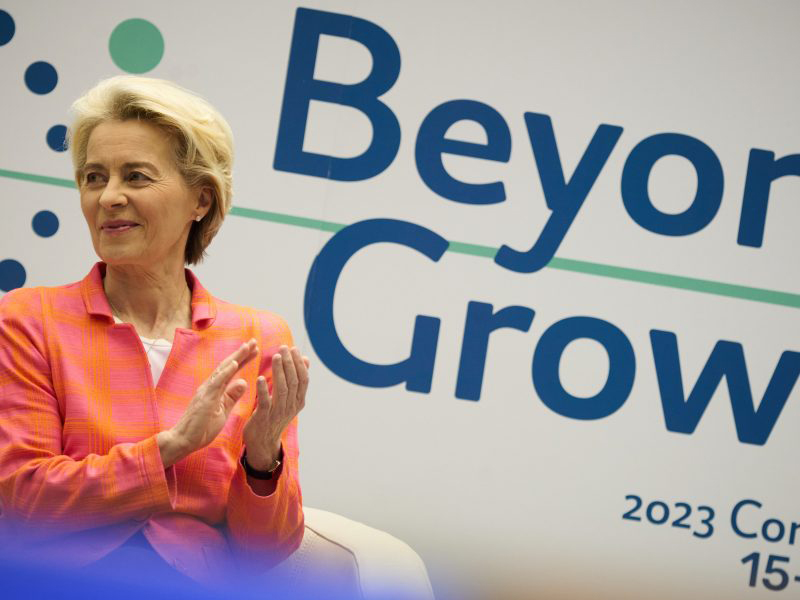
2023
May
Beyond Growth
The Club of Rome was an organising partner of the Beyond Growth 2023 conference at the European Parliament. Ursula Von der Leyen, President of the European Commision praised the work of The Club of Rome, specifically referencing The Limits to Growth as getting right beyond any doubt, that a growth model centred on fossil fuels is obsolete and proposing that humanity can devise a different and sustainable growth model.
Ahead of the conference, the European Parliament prepared a study as an introduction to the beyond growth debate. Earth4All is included as an example of an economic policy framework to move beyond growth and fully integrate social and climate justice, equality and planetary boundaries into the functioning of societies.
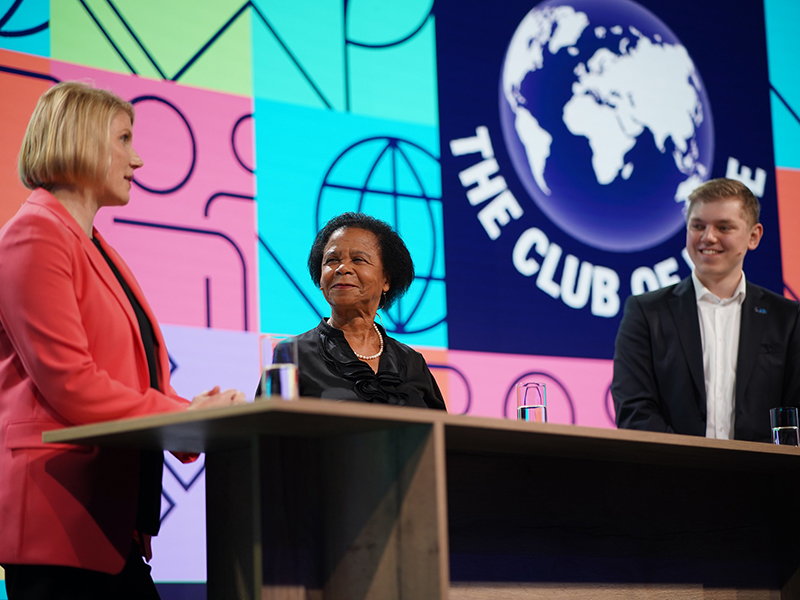
2023
April
A New Generational Contract
The Club of Rome and the St. Gallen Symposium launched The New Generational Contract, a platform that seeks to bring together young leaders, academics and experts to develop innovative approaches for the world’s most pressing challenges. By fostering cross-generational dialogue and collaboration, the initiative aims to facilitate regenerative futures for all.
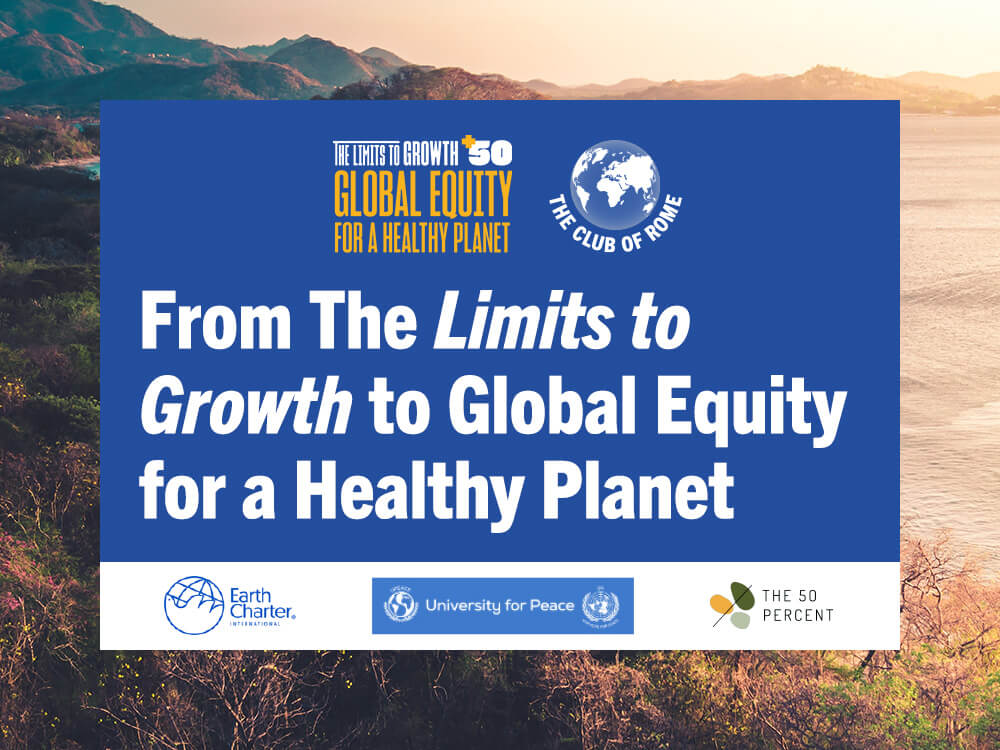
2022
December
Annual conference in Costa Rica
The Club of Rome Annual Conference 2022 was held in Costa Rica, a country leading global efforts to protect nature and the environment and actively putting into practice the conference theme of global equity for a healthy planet.
During the conference, diverse panels highlighted how global economic activity is increasing social inequality and causing ever greater environmental damage as humanity continues to overshoot the carrying capacity of our planet. Speakers focused on the governance of the commons as a key concept in creating a sustainable future for all.

2022
September
Earth for All
In September 2022 the book Earth for All: A Survival Guide for Humanity was launched at a number of events, including the closing of the New York Stock Exchange. It details the results of the Earth4All initiative, a collaboration between leading economic thinkers and scientists convened by The Club of Rome, the Potsdam Institute for Climate Impact Research, the BI Norwegian Business School and the Stockholm Resilience Centre.
The initiative identifies five extraordinary turnarounds to achieve wellbeing for all within planetary boundaries. The book is available in multiple languages.
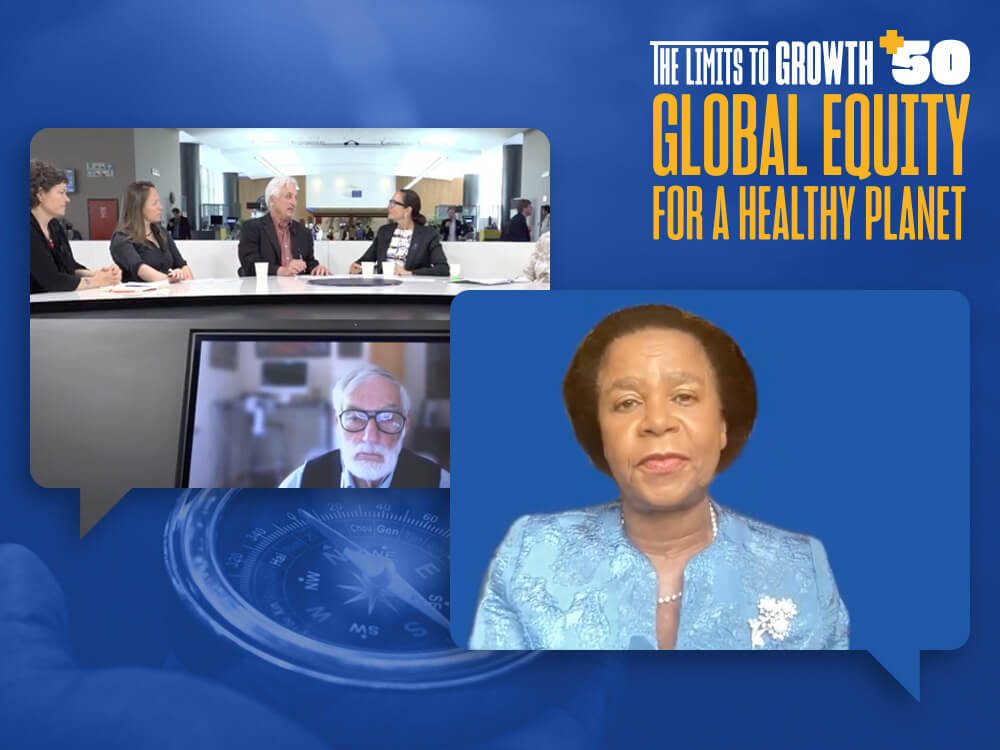
2022
July
The Club of Rome Podcast
The Club of Rome launched its own podcast bringing a range of expert voices to a wide audience via numerous episodes covering a range of topics and speakers. The podcast is available on all major podcast platforms, including Spotify, Apple, Google Podcasts, and Amazon Music.
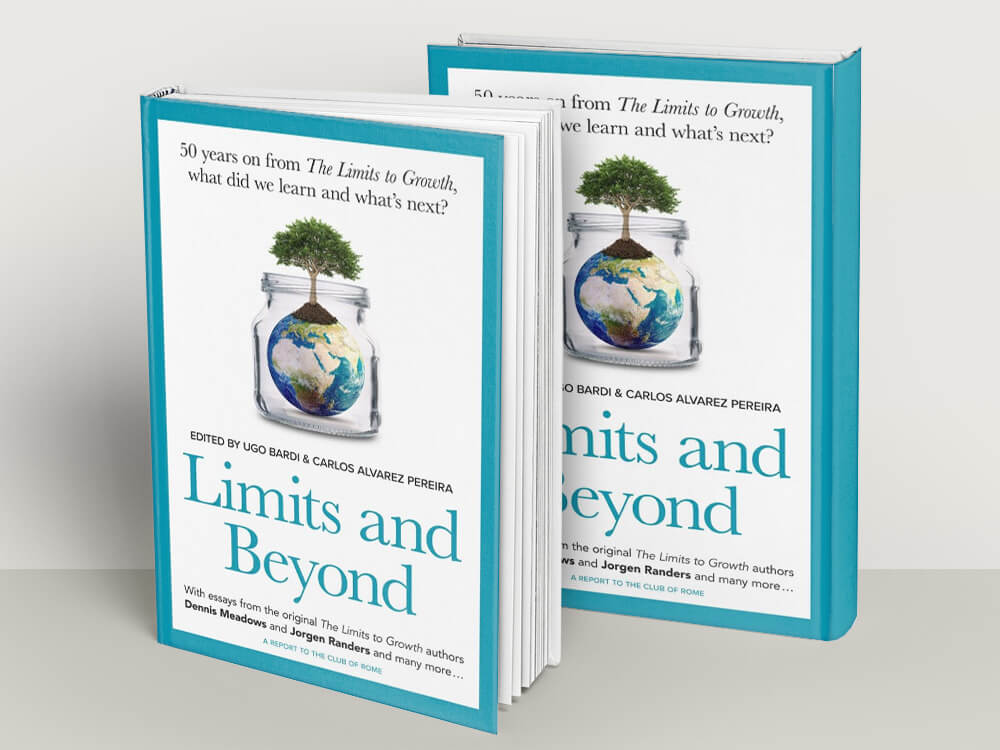
2022
May
Limits and Beyond
Limits and Beyond was published in May 2022 to mark the 50th anniversary of The Limits to Growth. Co-edited by Ugo Bardi and Carlos Alvarez Pereira the book brings together diverse perspectives from across the world with 21 authors including 17 members of The Club of Rome.
Reflecting on the five decades since the original report warned of the consequences of unlimited growth the authors ask “What have we learned? and propose instruments to create space for the shifts in mindsets needed to catalyse action and achieve global equity for a healthy planet.
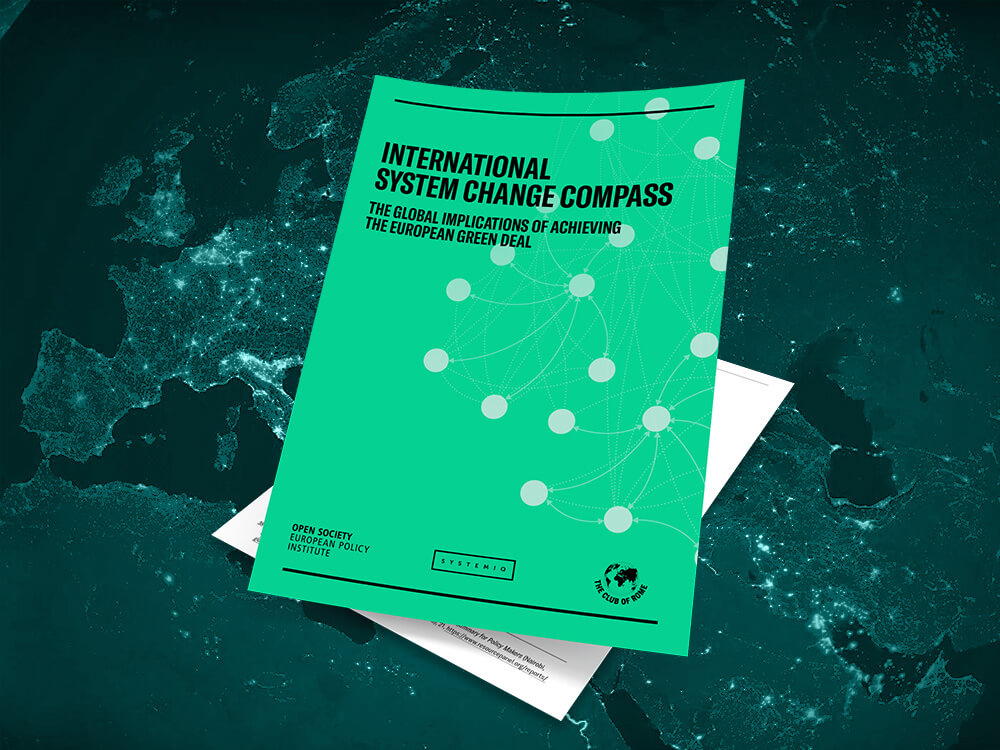
2022
May
International System Change Compass
Building on the foundations of A System Change Compass: Implementing the European Green Deal in a time of recovery (2020) report, The Club of Rome published the International System Change Compass: The Global Implications of Achieving the European Green Deal, with SYSTEMIQ and the Open Society European Policy Institute.
The report shows how the EU can change its trade, investment and political relationships with low and lower-middle income countries to support a globally just transition. It received widespread support from policymakers worldwide, including Mia Mottley, the Prime Minister of Barbados and Frans Timmermans, the Executive Vice-President of the European Commission.
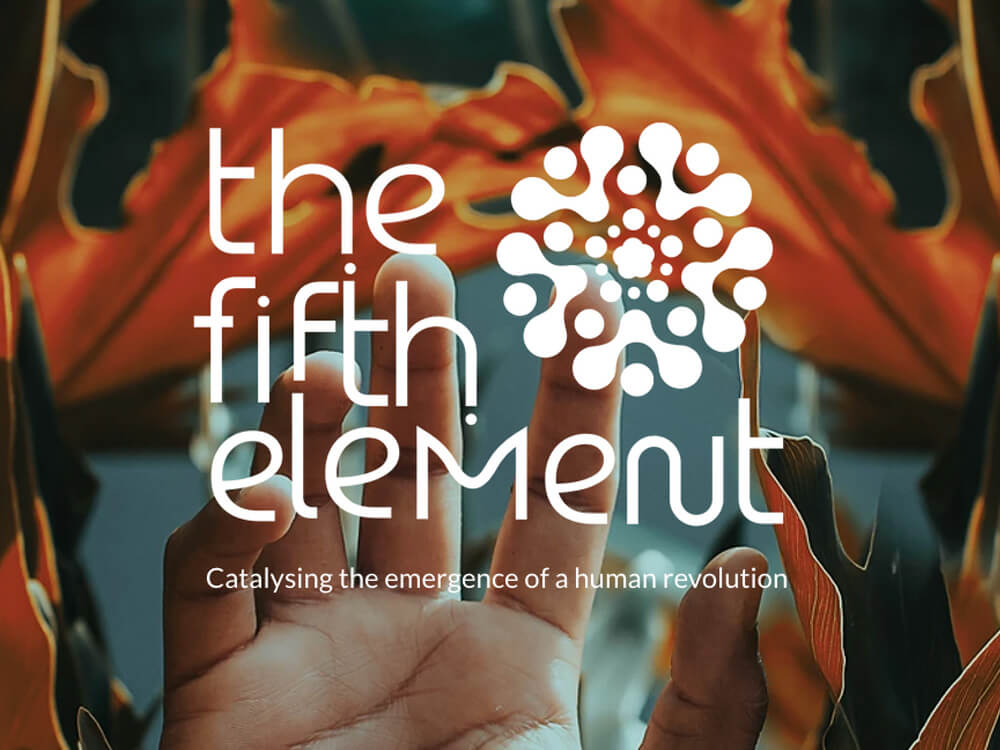
2022
April
The Fifth Element
The Fifth Element project was launched by The Club of Rome at an event with partners in Switzerland in April 2022. It seeks to learn best practices from sustainable communities, to gather the conditions for people and organisations to act in favour of a regenerative change, and to synthesise existing knowledge for the emergence of desirable and pluriversal futures.
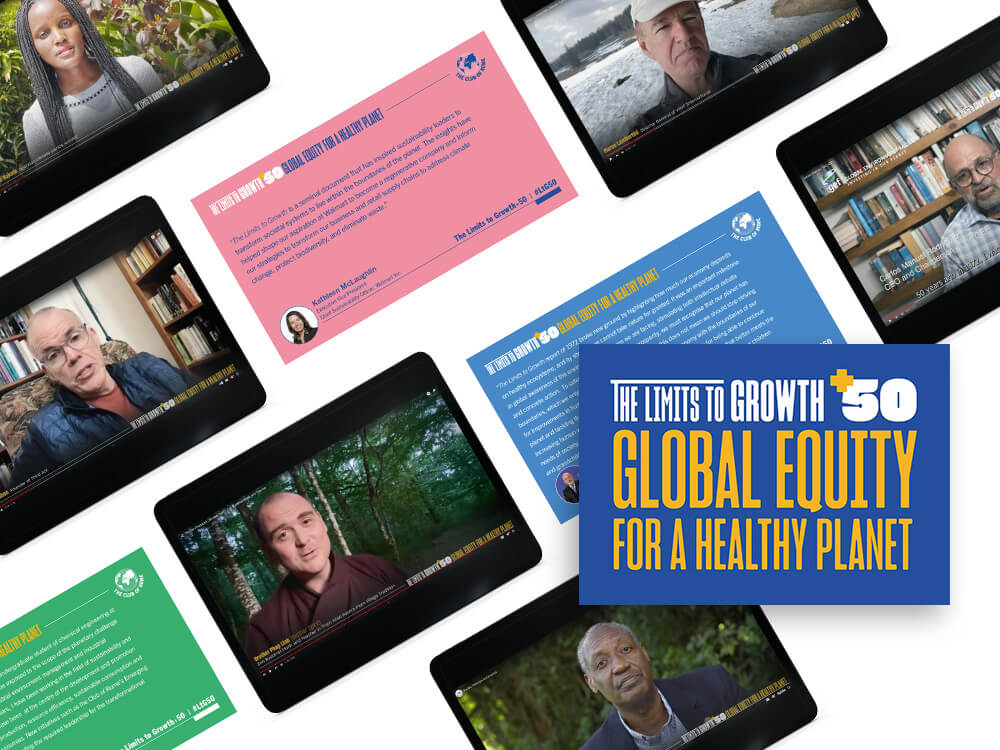
2022
50 years since The Limits to Growth
2022 marked the fiftieth anniversary of the Club of Rome’s landmark report The Limits To Growth. Reflective celebrations took place throughout the year, including a series of webinars, events and commemorative publications. The anniversary kicked off on 2 March with Dennis Meadows, one of the report’s authors, and fellow panelists discussing Global equity for a healthy planet: Living within Limits.
People from around the globe including Caroline Lucas, UK Member of Parliament for Brighton Pavillion, Kaddu Sebunya, CEO of the African Wildlife Association and Vanessa Nakate, Ugandan climate activist — contributed testimonials reflecting on the impact of The Limits to Growth, how it influenced them personally and its relevance in the world today.
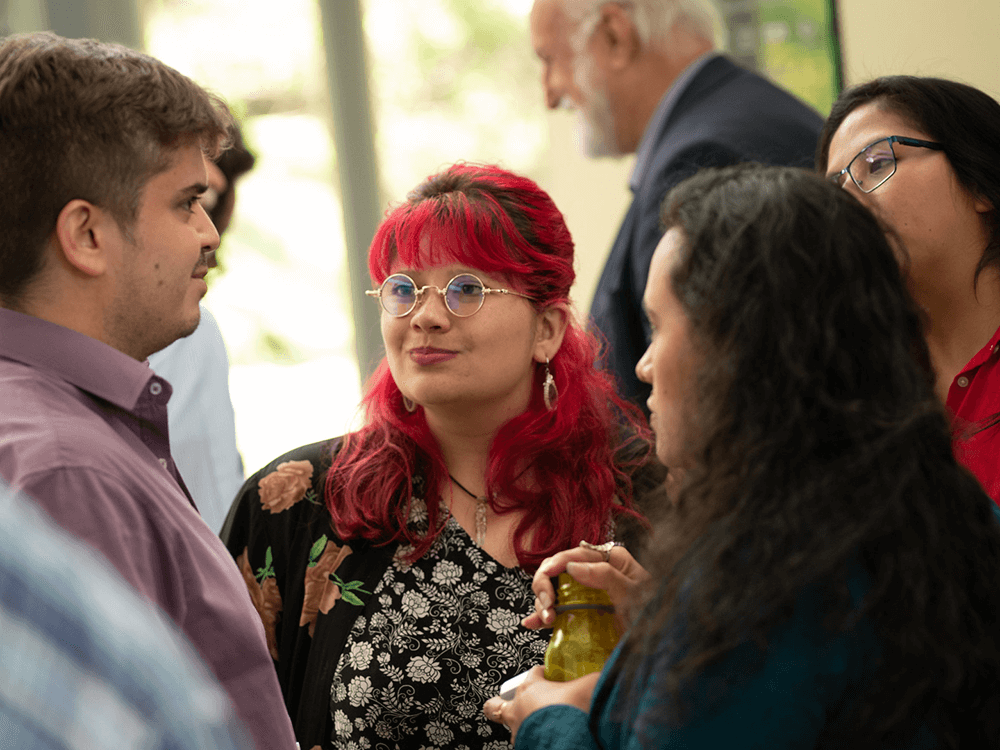
2021
Summer
The 50 Percent: A global network of young people
The Club of Rome launched The 50 Percent – an international network of young people who believe that every young person, regardless of their economic, social, or cultural situation, has the capacity to make a positive impact on the future. Through a variety of activities it ensures the perspectives and impacts of young people are heard by policymakers, business and academic leaders.

2020
October
The Global Youth Summit
The Global Youth Summit brought together young people from different regions across the world to participate in online discussions focused on the themes of The Club of Rome’s impact hubs.
Following this discussion, a group of representatives aged 17-30 years, attended The Club of Rome’s general meeting to participate in intergenerational dialogue with our members.
Throughout 2021, The Club of Rome implemented a series of activities for young people in order to listen to their concerns and aspirations for the future, build their engagement with global issues and support them to voice their hopes and fears.

2020
February
Launching the Rethinking Finance Impact Hub
The Club of Rome held the first meeting of its Rethinking Finance Impact Hub in Brussels, Belgium, bringing together officials from EU institutions, the European Investment Bank, the European Central Bank, national central banks, finance institutes, foundations, and impact investors, academics and members of The Club of Rome.
The hub aims to contribute to the evolution of the financial system so it can serve the transformation of our economy to achieve human wellbeing within planetary boundaries.
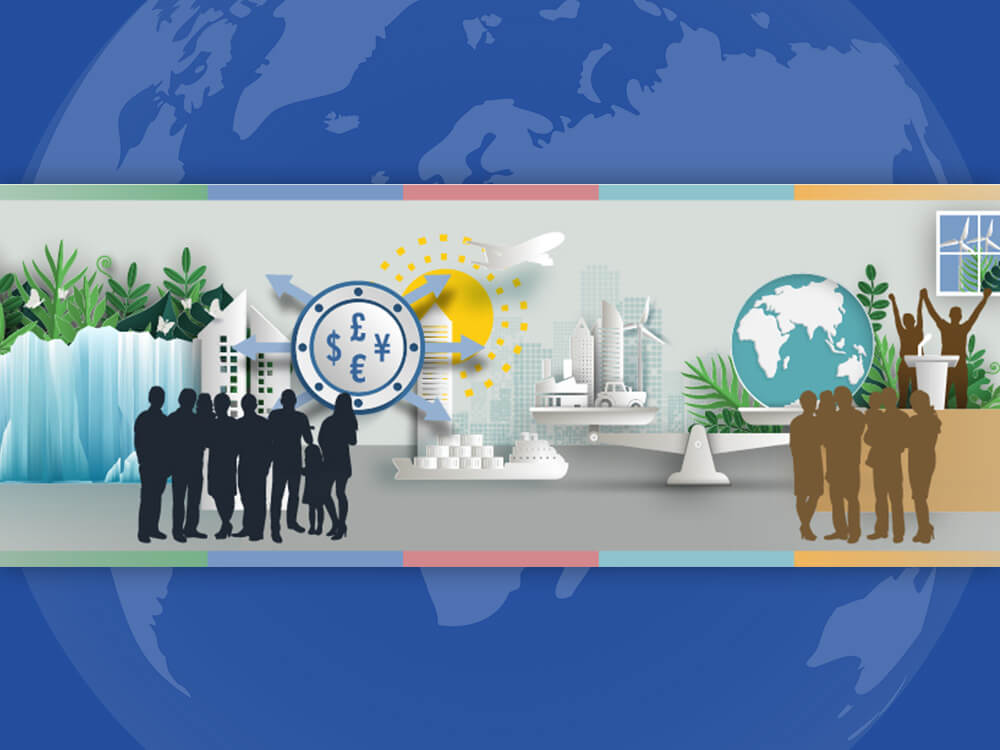
2019
Developing a new vision and mission
The Club of Rome developed a new work program and operational structure, establishing five impact hubs on the themes of: Planetary Emergency; Reframing Economics; Rethinking Finance; Emerging New Civilisations; and Youth Leadership and Intergenerational Dialogues. A satellite office, focusing on Rethinking Finance, was opened in Brussels.

2019
November
Lessons from Africa
For the first time The Club of Rome held its Annual Conference in Sub-Saharan Africa. The event marked a milestone in the organisation’s history as it sought to broaden its reach beyond its traditional European heartlands and to better integrate the voices of younger generations.
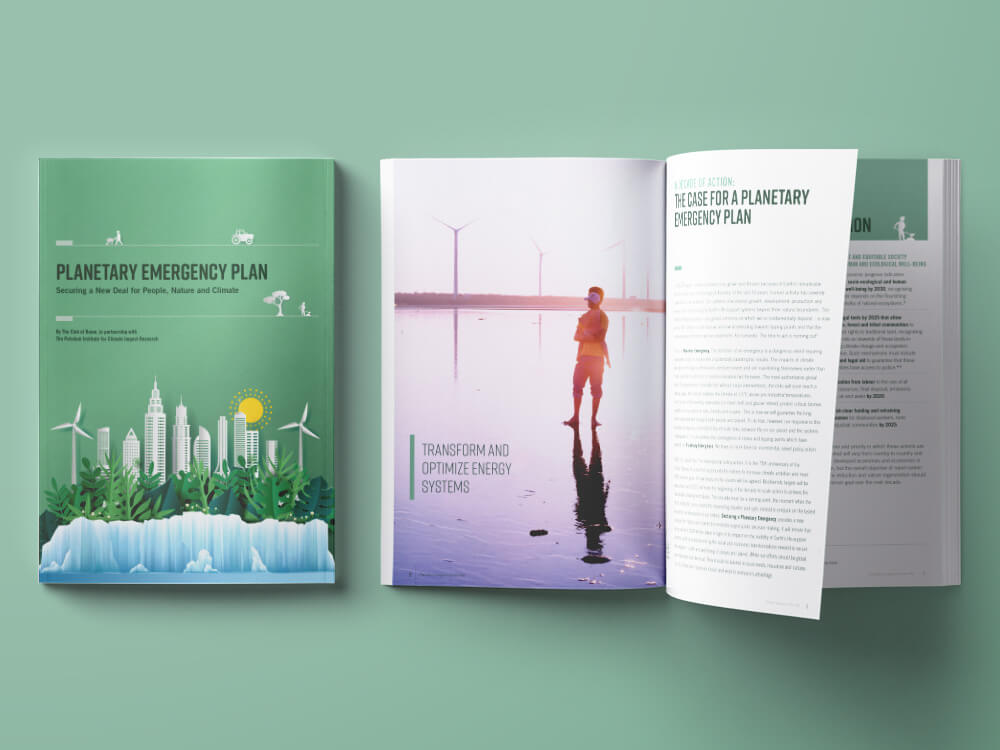
2019
September
The Planetary Emergency Plan
The Club of Rome launched The Planetary Emergency Plan on the sidelines of the UN Climate Action Summit in New York in partnership with the Potsdam Institute for Climate Impact Research. The plan, provides a set of policy levers to help governments address the cross-cutting challenges of climate change, biodiversity loss, and human health and wellbeing. It aims to steer the development path of our planet onto one which is inherently beneficial for all living species and which leaves no one behind.
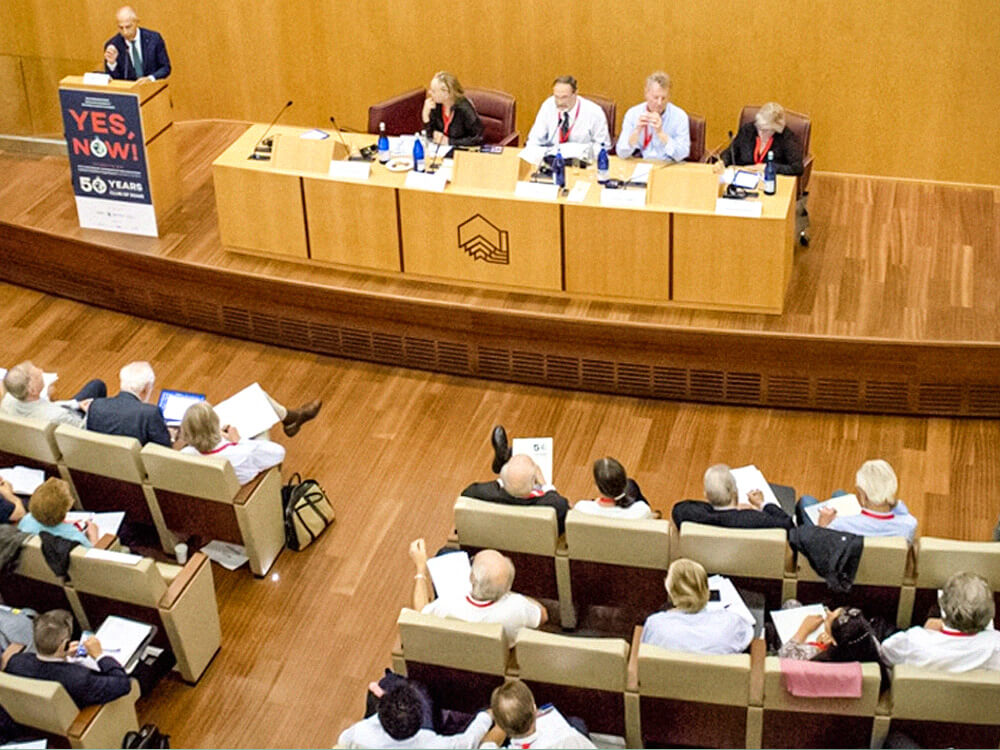
2018
Celebrating 50 years of the Club of Rome
Fifty years to the day after The Club of Rome was founded, 100 members, friends and guests gathered at the organisation’s headquarters in Winterthur, Switzerland on 7 April 2018.
In October 2018, more than 400 international thought leaders and dignitaries came together in Rome to discuss the most pressing challenges and solutions facing humanity and the planet.
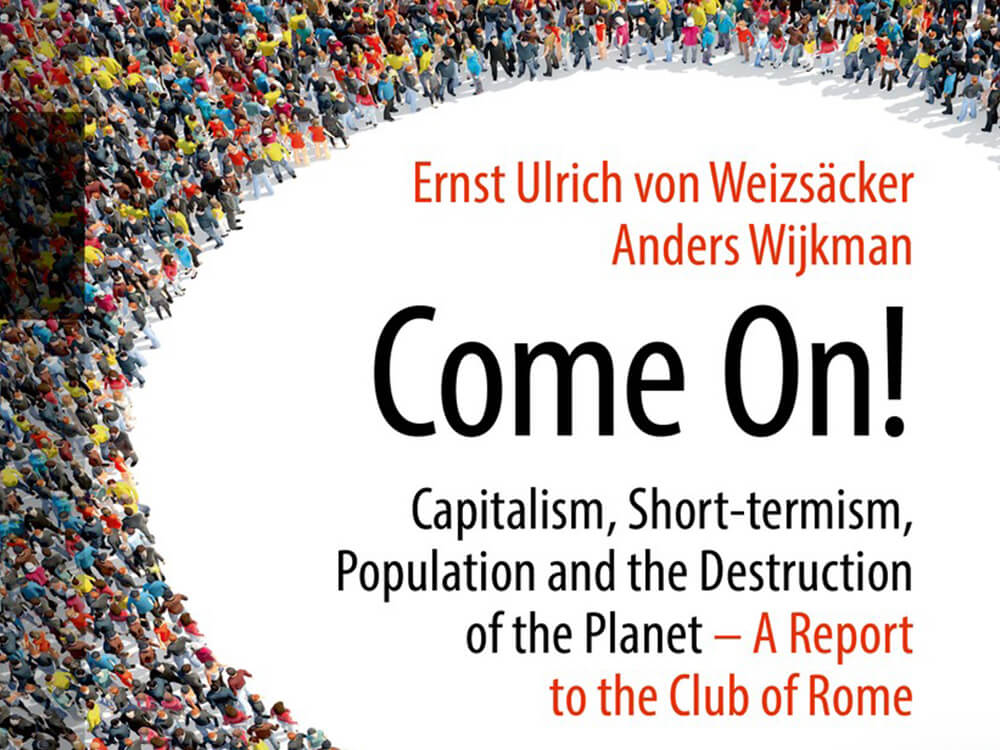
2018
Launching Come On!, how to overhaul capitalism
In cooperation with more than 30 members of The Club of Rome, co-presidents Ernst Ulrich von Weizsäcker and Anders Wijkman published Come On! Capitalism, Short-termism, Population and the Destruction of the Planet. The book proposed an overhaul in the way governments, businesses, financial systems, innovators and families interact with our planet.
![2ParticipantsSummerAcademy2017[64]](http://www.clubofrome.org/wp-content/uploads/2023/12/2ParticipantsSummerAcademy201764.png)
2017
The Club of Rome Summer Academy
In partnership with the University of Florence, The Club of Rome held its first Summer Academy: Challenging an unsustainable economic system: Ethical economic thinking, activist skills for change.
This summer school brought together students and academics, young professionals, aspiring entrepreneurs, young journalists, artists and activists with some of the world’s leading social and systems thinkers to inspire economic, ecological and political movements towards action.

2008
The Club of Rome moves to Switzerland
With the support of Swiss businessman and Club of Rome supporter Robert Heuberger, the organisation established its international secretariat in Winterthur, Switzerland.
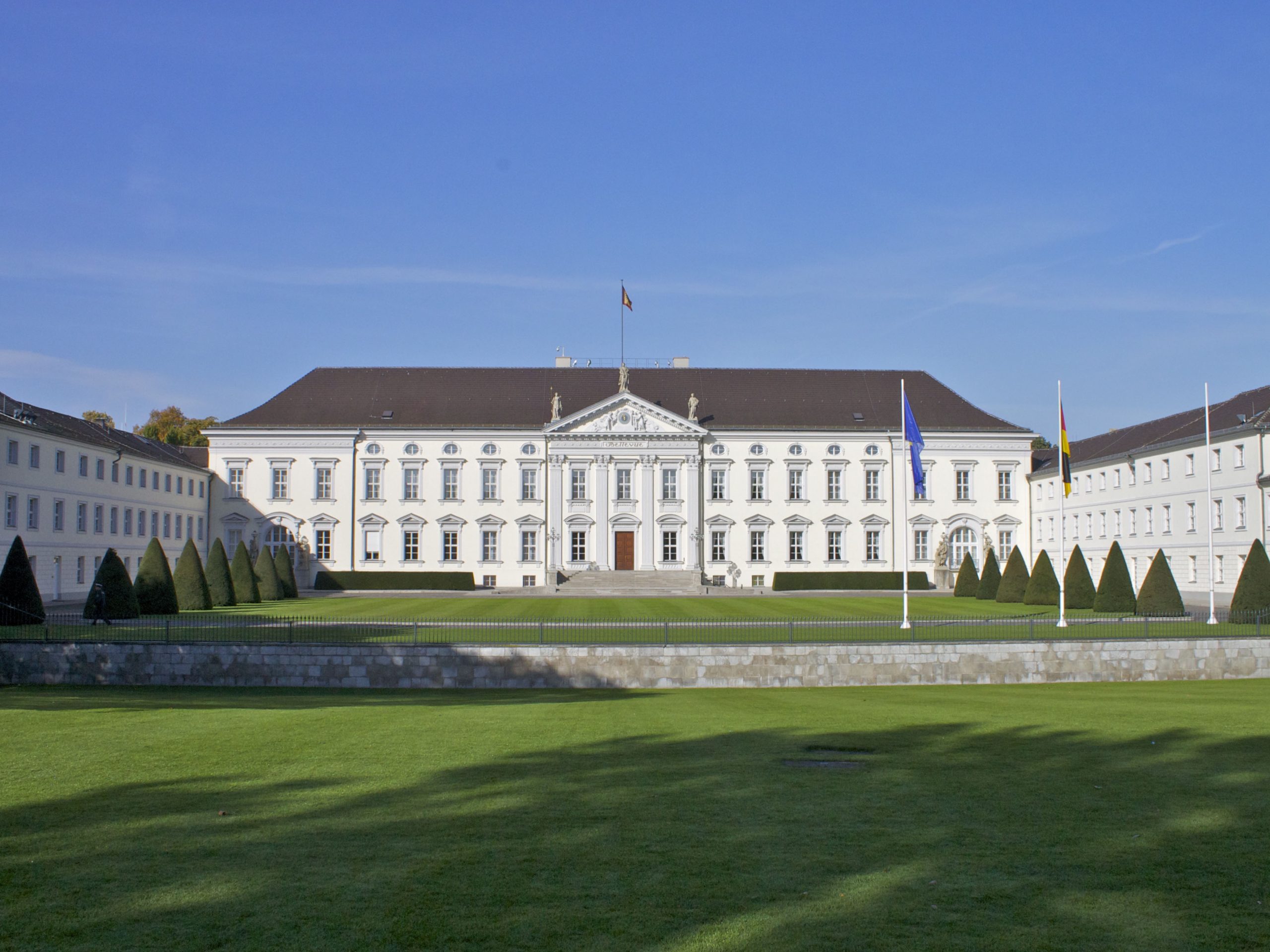
2007
November
Policy challenges in the next phase of globalisation
On the invitation of H. E. Dr. Horst Köhler, the German Federal President, The Club of Rome hosted a day-long international conference on Policy Challenges in the Next Phase of Globalisation. The conference took place in Schloss Bellevue, the president’s official residence.
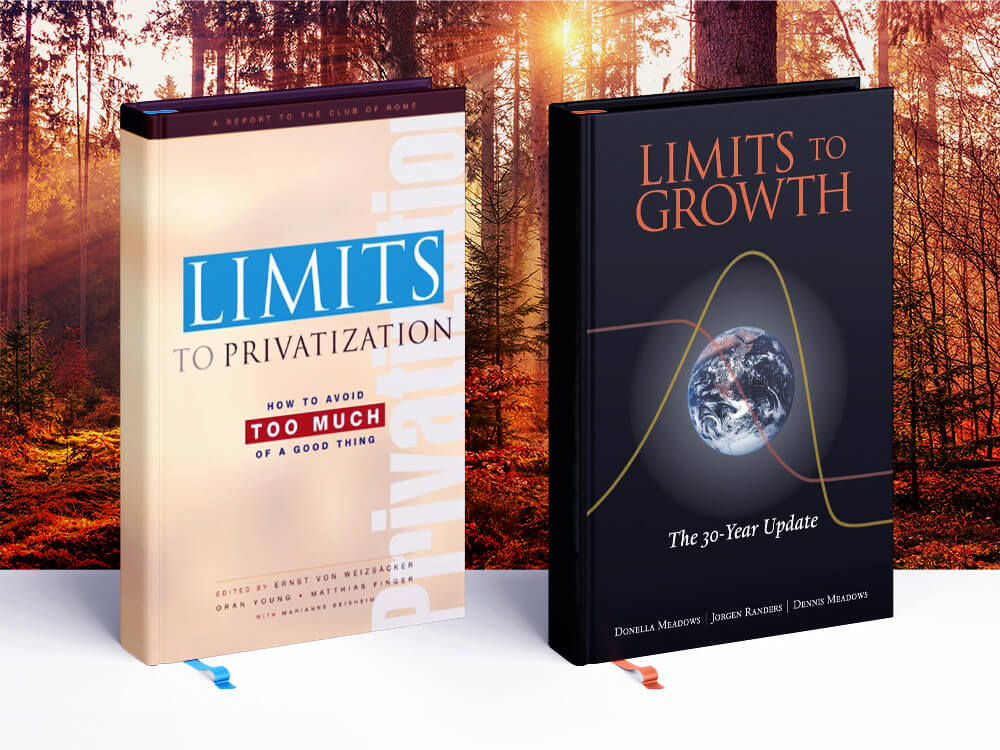
2004
Responding to The Limits to Growth 30 years on
Ernst Ulrich von Weizsäcker published his second report to The Club of Rome, Limits to Privatisation: How to Avoid too Much of a Good Thing. The report critically reviewed privatisation efforts globally, with over 50 case studies. It provided guidance on the balance, power and responsibilities of the public and the private sector, and examined the increasingly important role of civil society.
Dennis Meadows, one of the original authors of The Limits to Growth report, published his book Limits to Growth – The 30 Year Update expressing his concern about a lack of action since 1972. The book concluded that humankind continued to “overshoot” the carrying capacity of our planet and had gone beyond the limits of the biosphere.
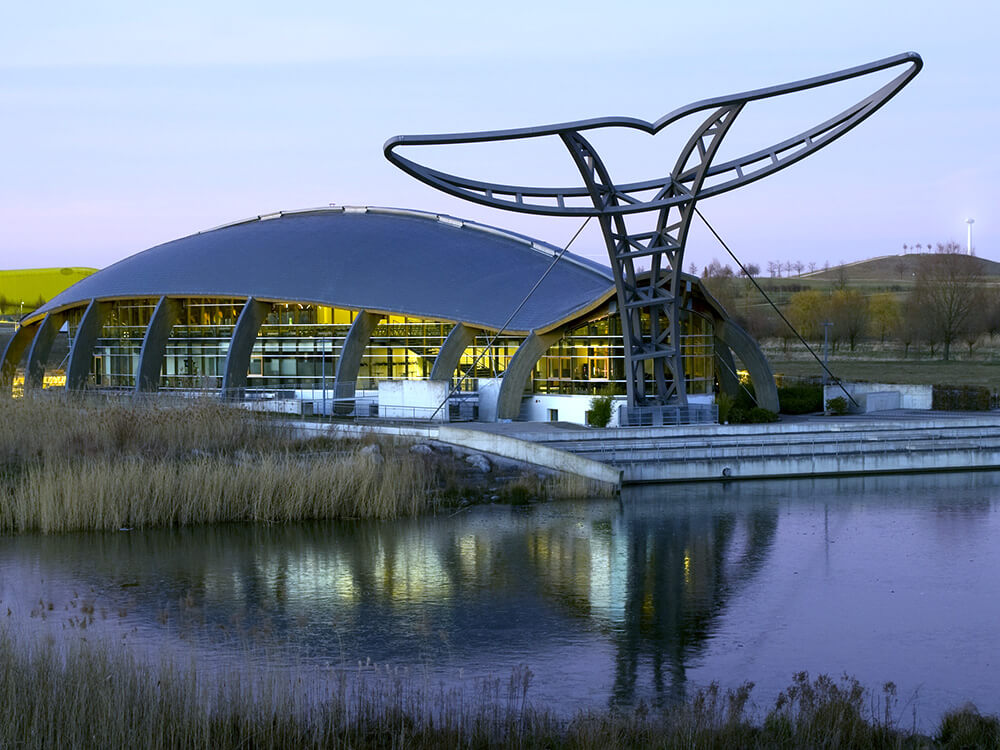
1999
EXPO 2000
The Club of Rome was heavily involved in EXPO 2000 in Hanover. The President of The Club of Rome, Ricardo Díez-Hochleitner, chaired EXPO’s International Advisory Board and was also in charge of the Global Dialogue, the philosophy of which had been developed by The Club of Rome’s Beyond 2000 – Which Kind of Society Do We Want?

1993
Conscience of the world
The President of Germany Richard von Weizsäcker told a German newspaper The Club of Rome was “the conscience of the world”.
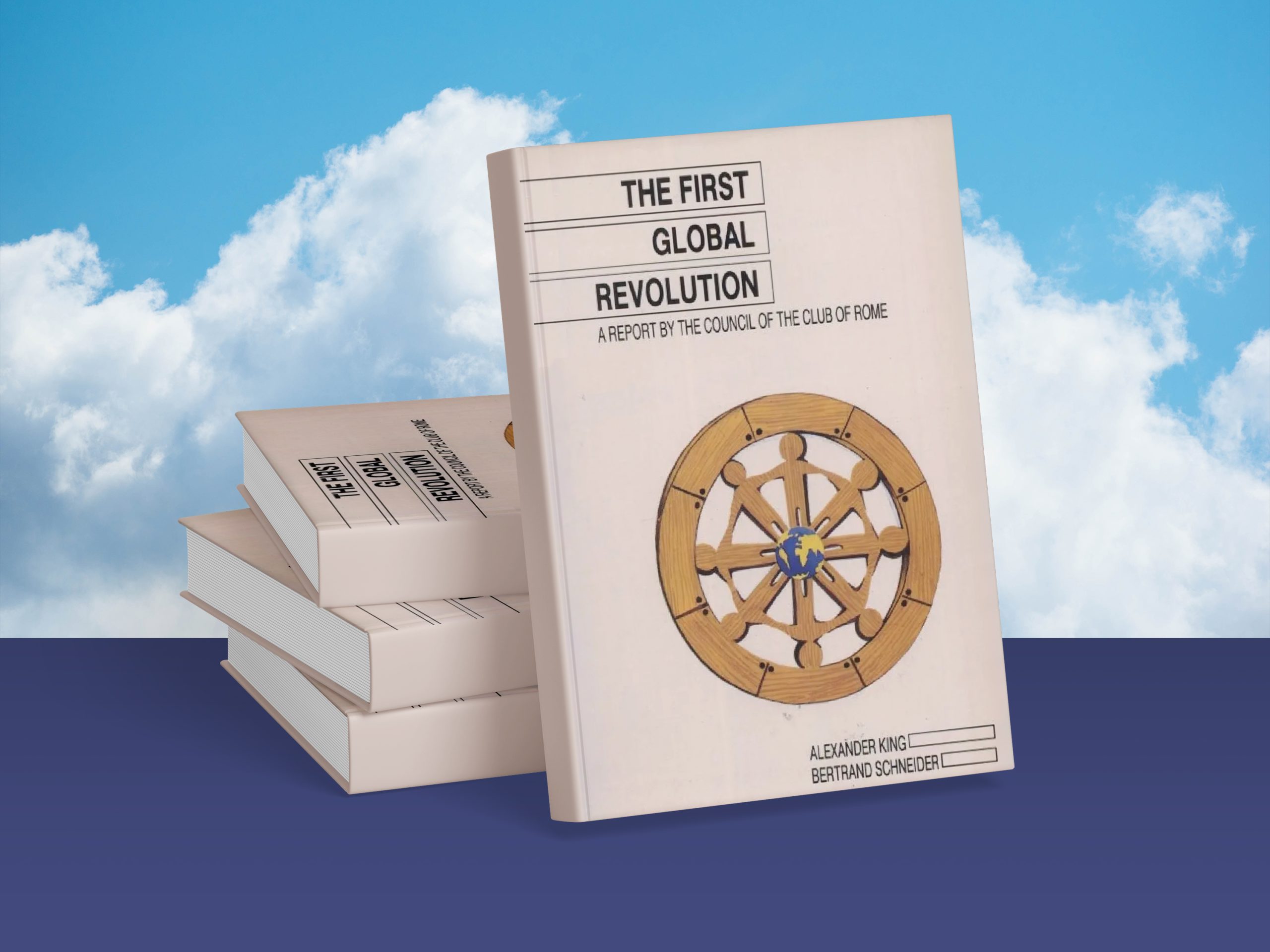
1991
The First Global Revolution: Setting priorities
The Club of Rome spent 1990 examining the world and reassessing its own mission in the context of turbulent global changes. The outcome was The First Global Revolution report which redefined the organisation’s priority concerns as development, the environment, governance, education and ethical values, and placed greater emphasis on action and concrete results.

1987
Creating national Associations
At The Club of Rome’s annual meeting in Warsaw, Poland, a charter was adopted to make national associations official entities of the organisation.
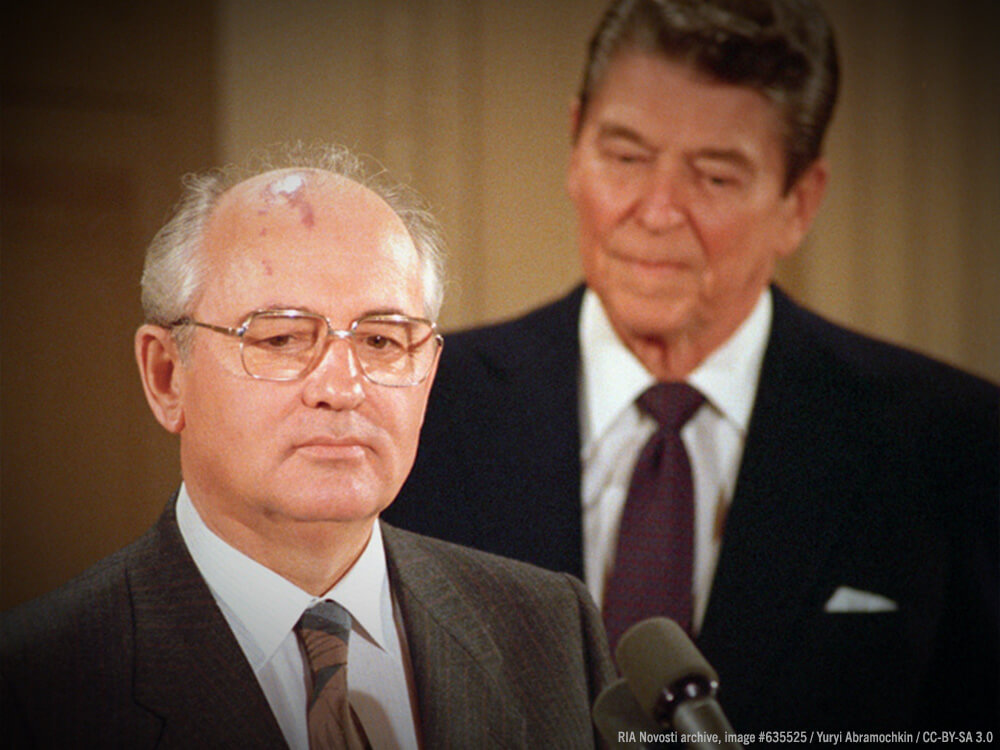
1986
Reaffirming a global mission
The Club of Rome decided to maintain a global approach, but also give itself the flexibility to focus, when necessary, on a single, or several specific, issues.
In his statement “The Club of Rome — Reaffirmation of a Mission”, Alexander King outlined potential focus areas as governability, peace and disarmament, population growth, human resources, and advances in science and technology.
Before the organisation’s October summit in Reykjavik, Iceland, The Club of Rome sent a memo to US President Ronald Reagan and USSR President Mikhail Gorbachev, suggesting they might work together to reduce arms sales to poorer countries. Gorbachev reacted positively, leading to crucial contacts during the periods of glasnost and perestroika.
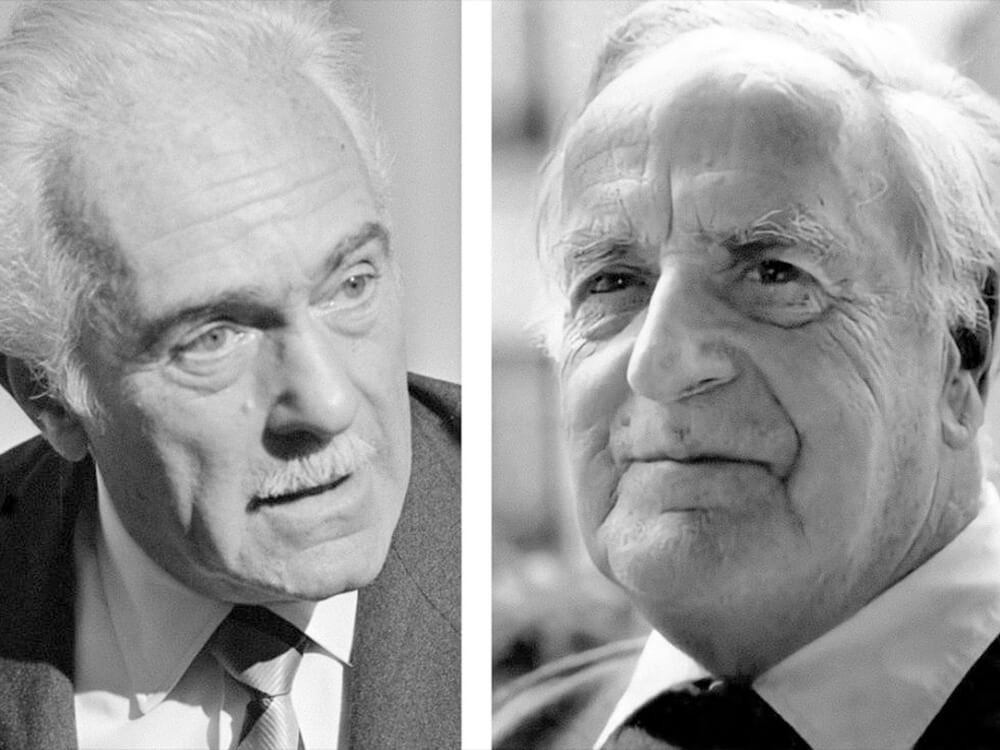
1984
March
After Peccei: Taking on new leadership
Aurelio Peccei, one of the founders of The Club of Rome died in March 1984. Co-founder Alexander King was elected as the new president and a more formalised structure, including a Secretariat, was created. The organisation’s headquarters were moved from Rome to Paris and prominent world figures who shared the The Club of Rome’s concerns, including former president of the USSR Mikhail Gorbachev, former president of Germany Richard von Weizsäcker and newly elected president of Czechoslovakia Vaclav Havel, were invited to become Honorary Members.
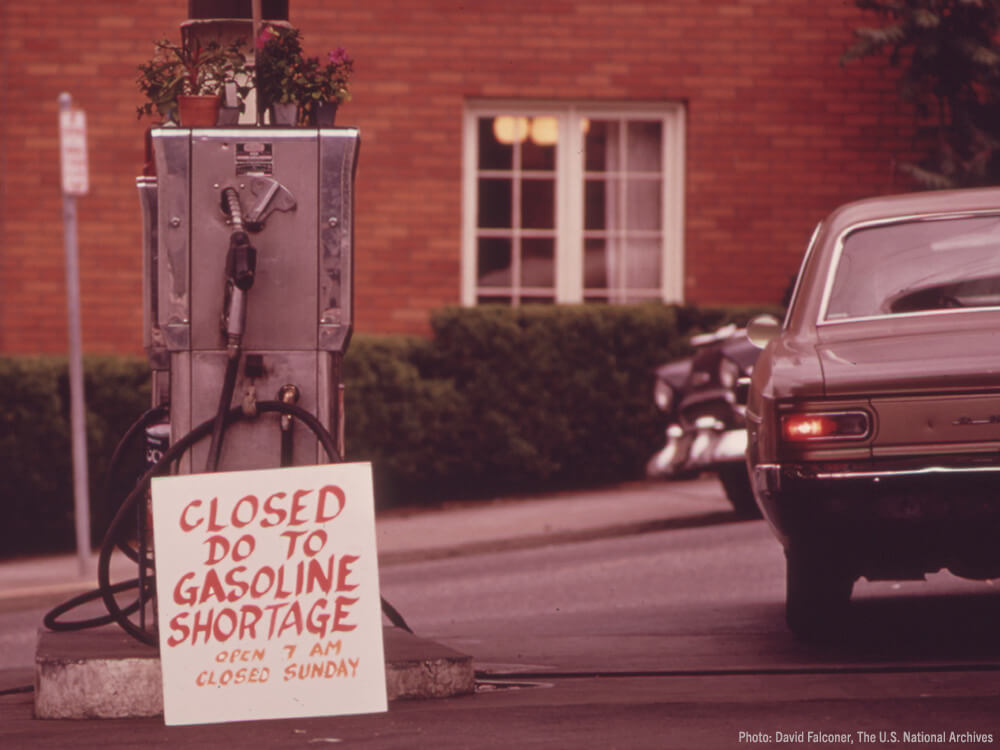
1974
The Salzburg Statement: Engaging with the oil crisis
On the initiative of The Club of Rome, Austrian Chancellor Bruno Kreisky hosted a meeting on “North-South Problems” in Salzburg, Austria, with six other heads of state and government. The two-day private brainstorming session produced the “Salzburg Statement.” Issued in front of 300 journalists, the statement emphasised how the oil crisis was part of a complex set of global problems and not merely a political issue, as many at the time believed.
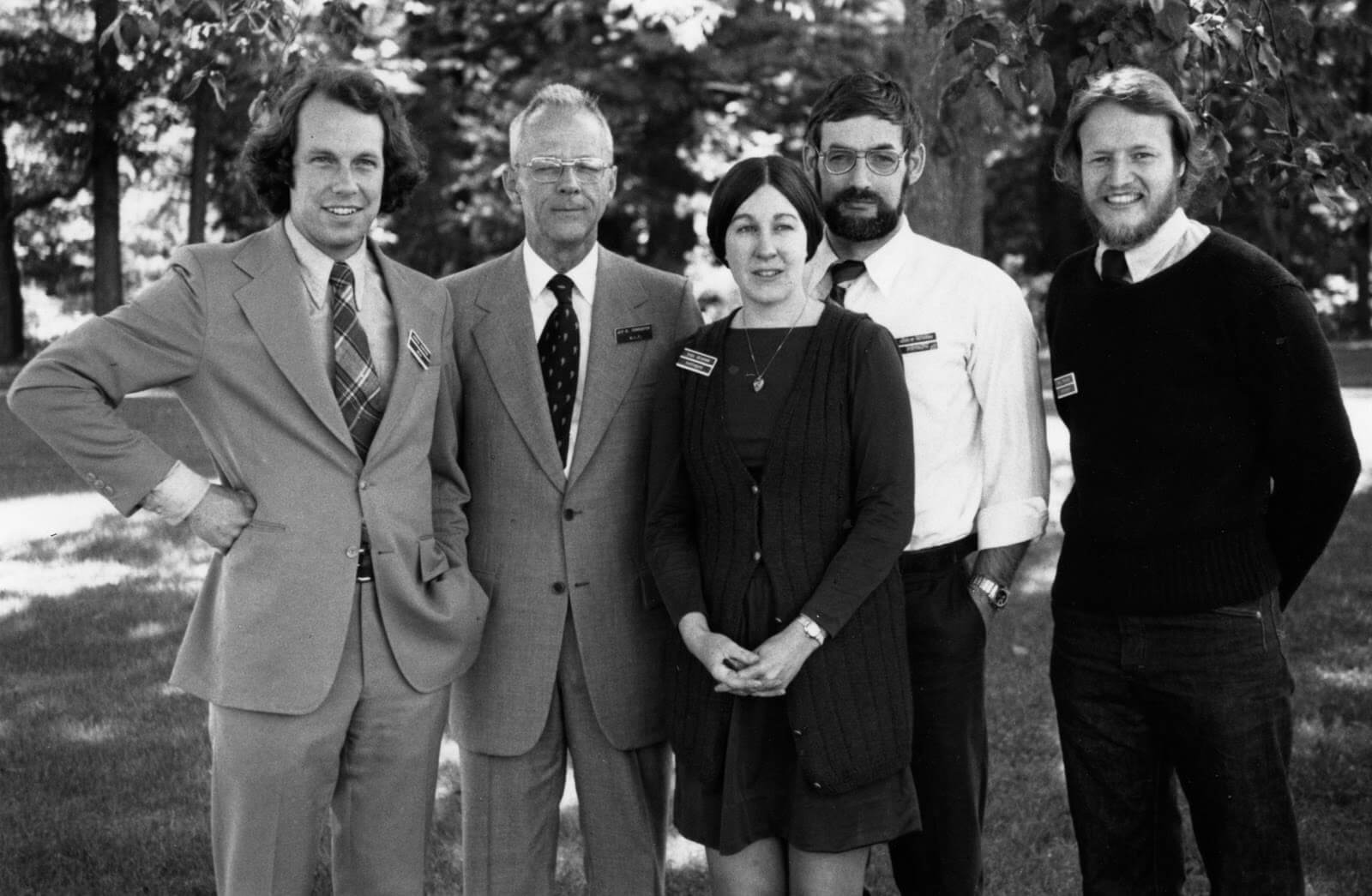
1972
Publishing The Limits to Growth
Under the supervision of Dennis Meadows, a group of professors at the Massachusetts Institute of Technology, US, was commissioned by The Club of Rome to study the complex problems with which it was grappling. The result was the groundbreaking 1972 The Limits to Growth report, the first publication to fundamentally challenge the dominant paradigm of unbridled economic growth without regard for the environmental consequences. Authored by Donella Meadows, Dennis Meadows, Jorgen Randers and William Behrens, the report became one of the most influential texts of the 20th century and continues to influence conversations around sustainability and our continued existence on this finite planet.
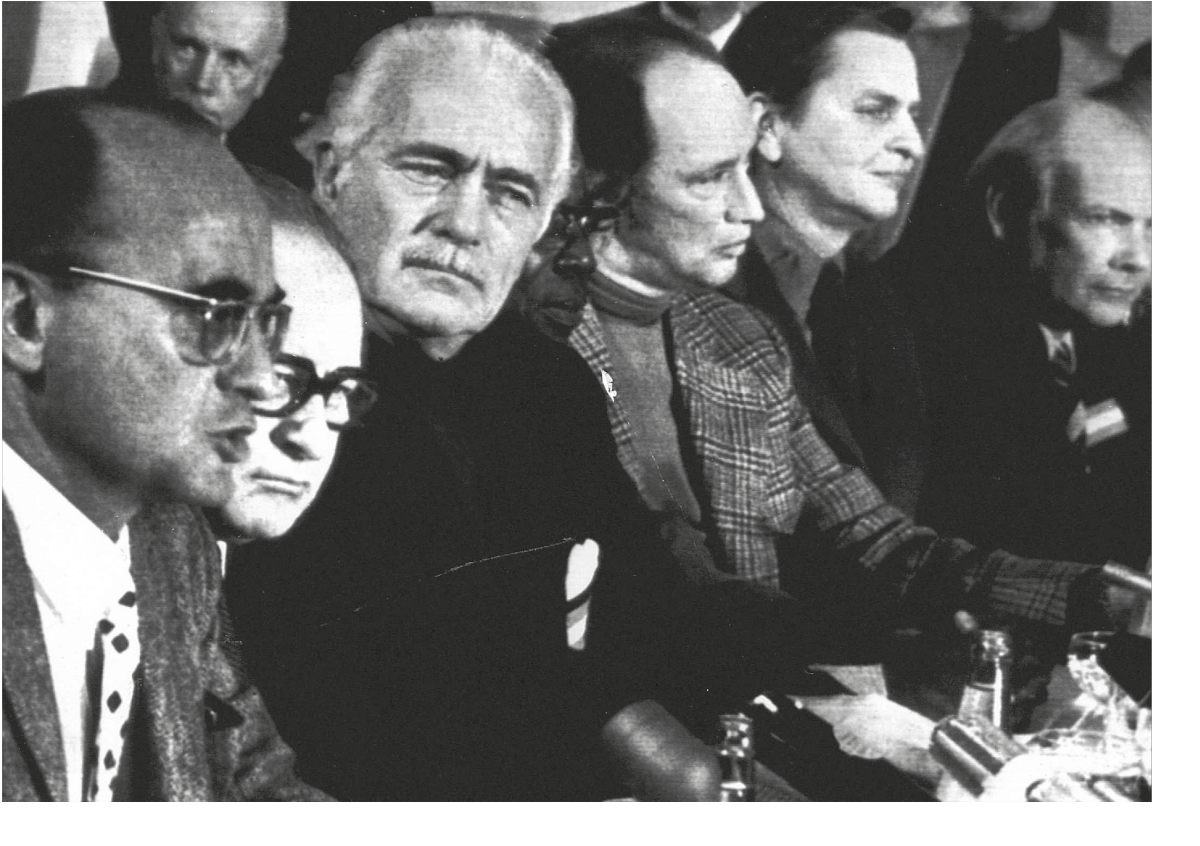
1968
Establishing The Club of Rome
In April 1968, a two-day meeting in Rome brought together 36 European economists and scientists. Despite differences of opinion, thinking crystallised around the three pillars that continue to define the organisation to this day — a global and long-term perspective, and Peccei’s concept of ‘problematique’ or a cluster of intertwined global problems.
After the initial meeting, the group met regularly with its numbers swelling to include experts and international decision-makers, but it remained loosely organised with no formal structure or secretariat.
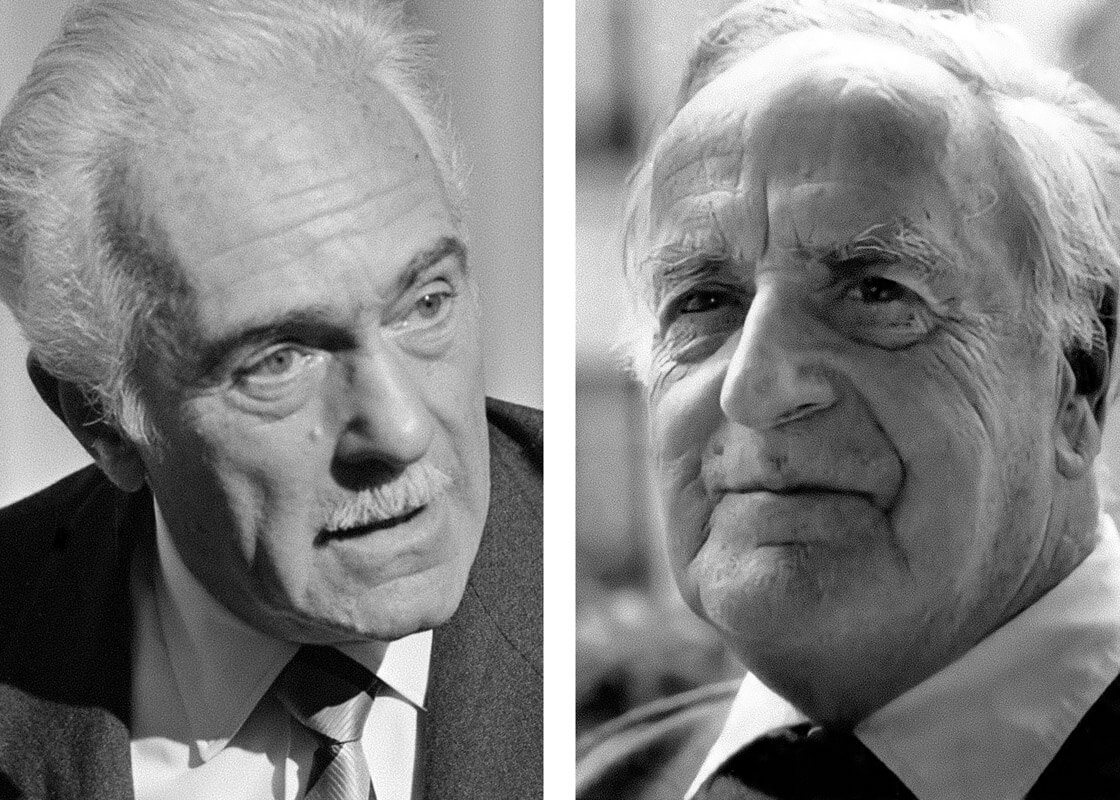
1965
The beginning: Thinking long-term
Concerned that governments were unable to solve the world’s most pressing problems or to engage in long-term thinking, an Italian industrialist Aurelio Peccei and a Scottish scientist Alexander King, convened a group of like-minded thinkers to deliberate on the causes and potential solutions to the great problems of mankind.


